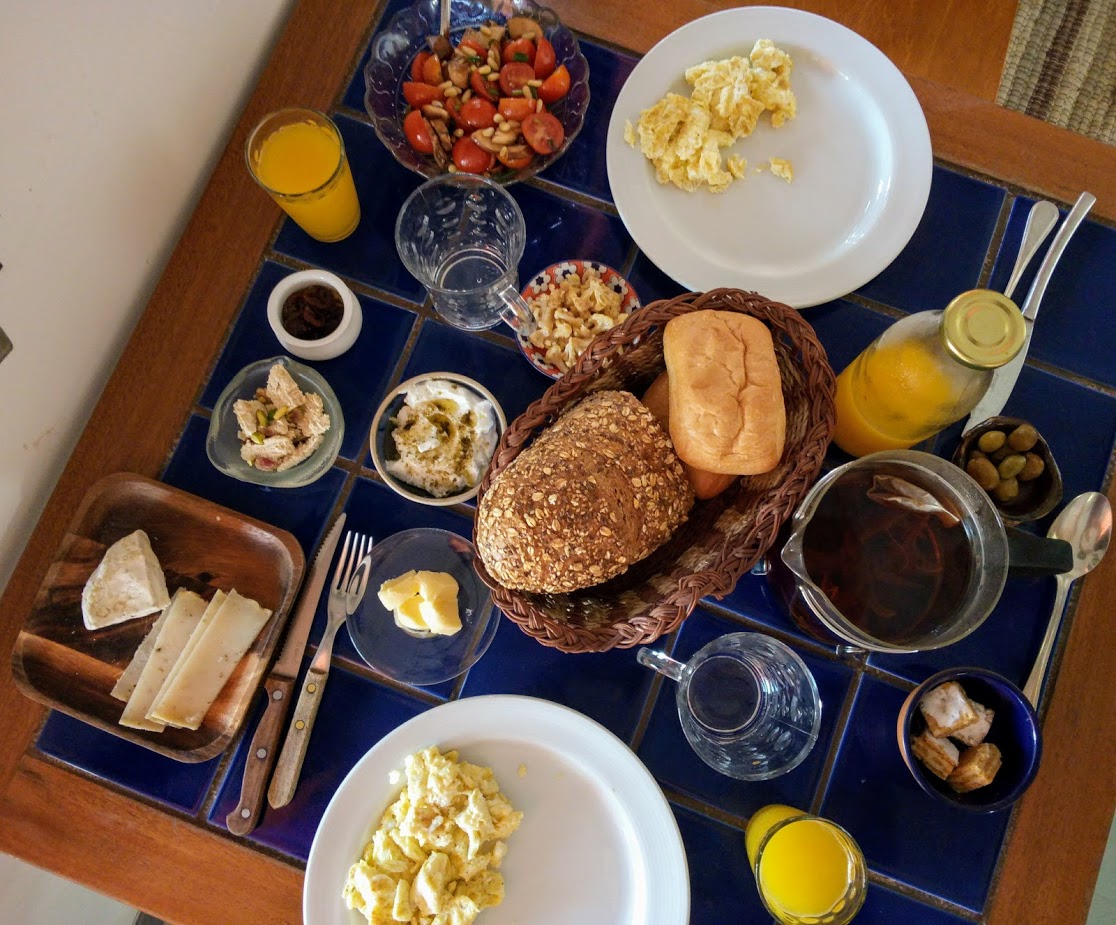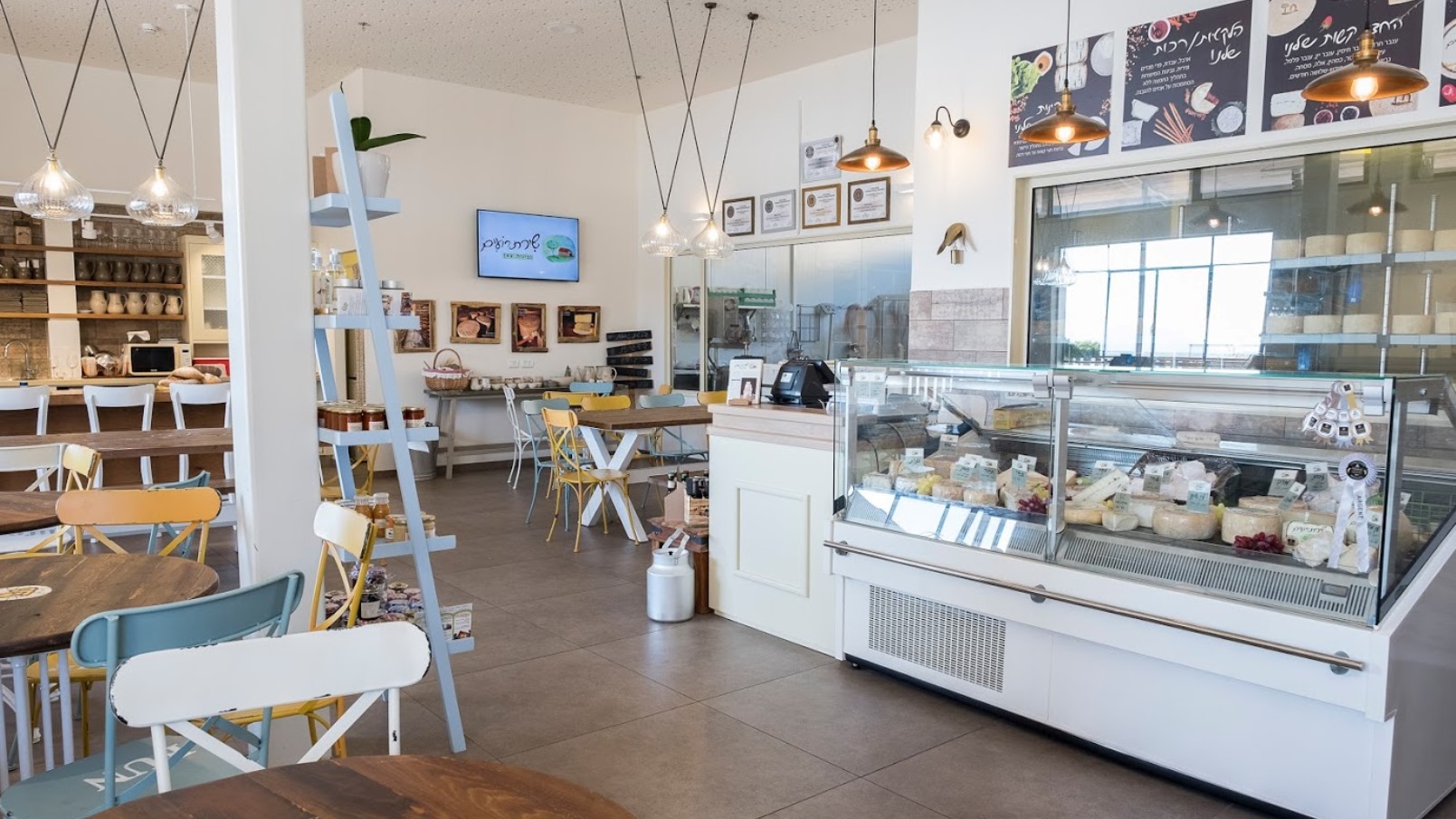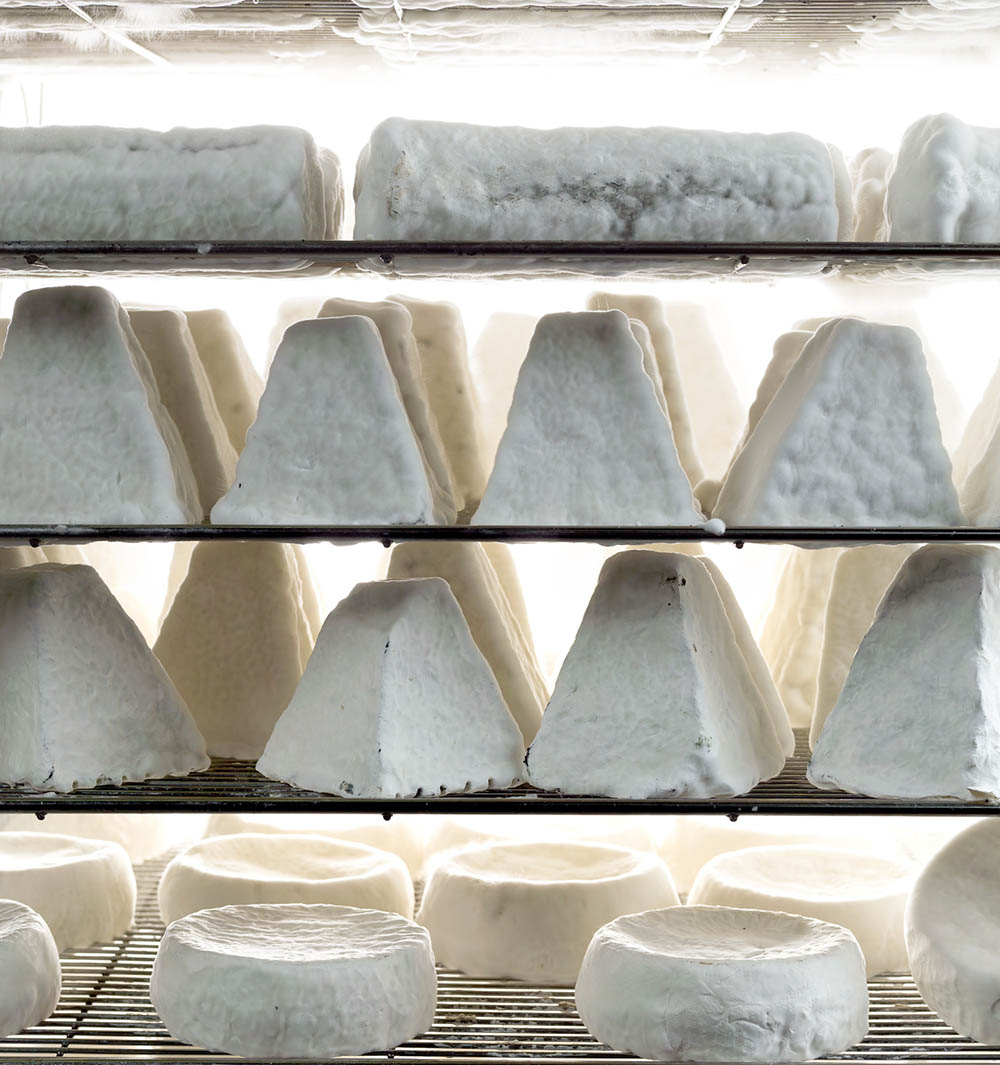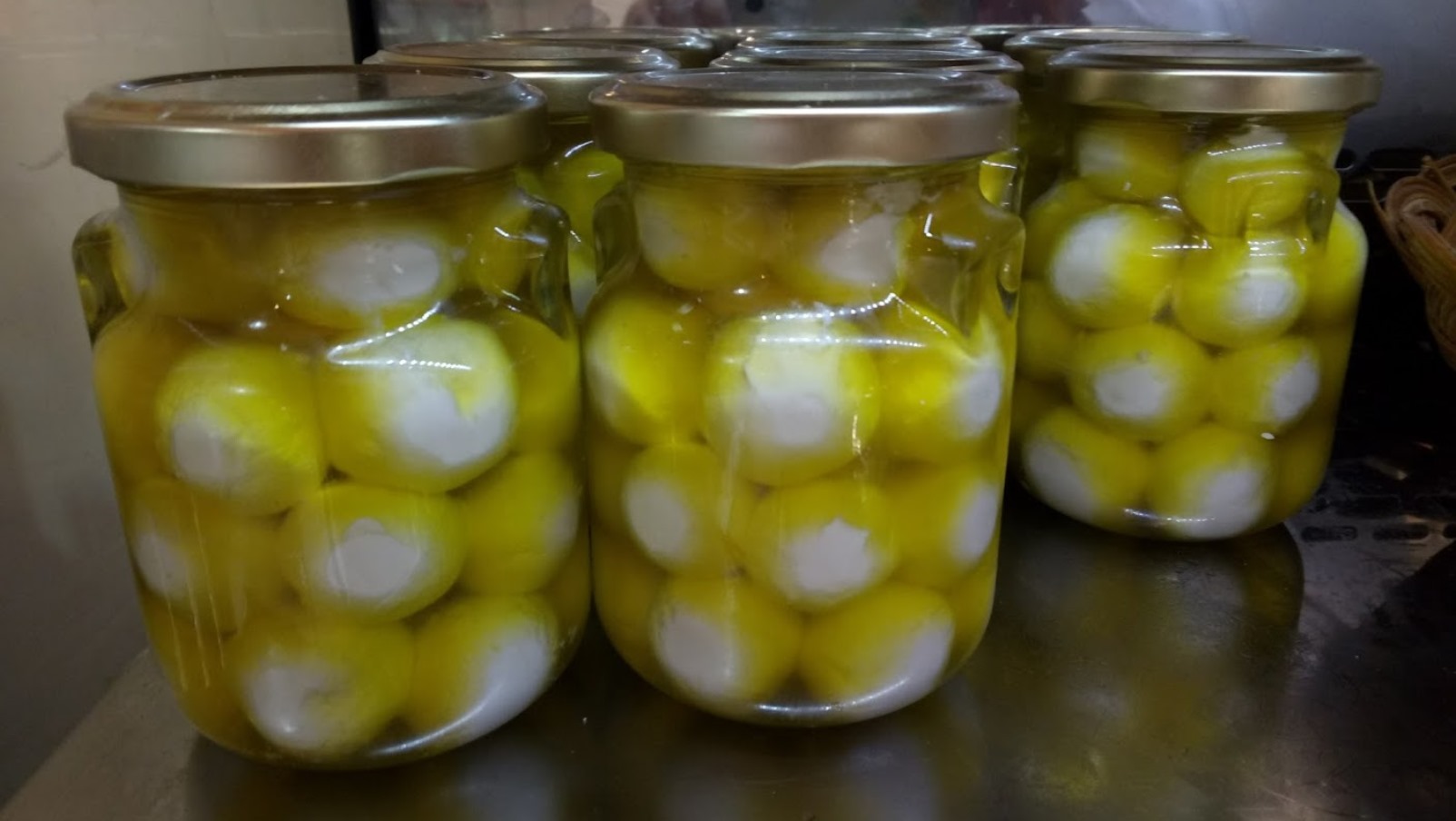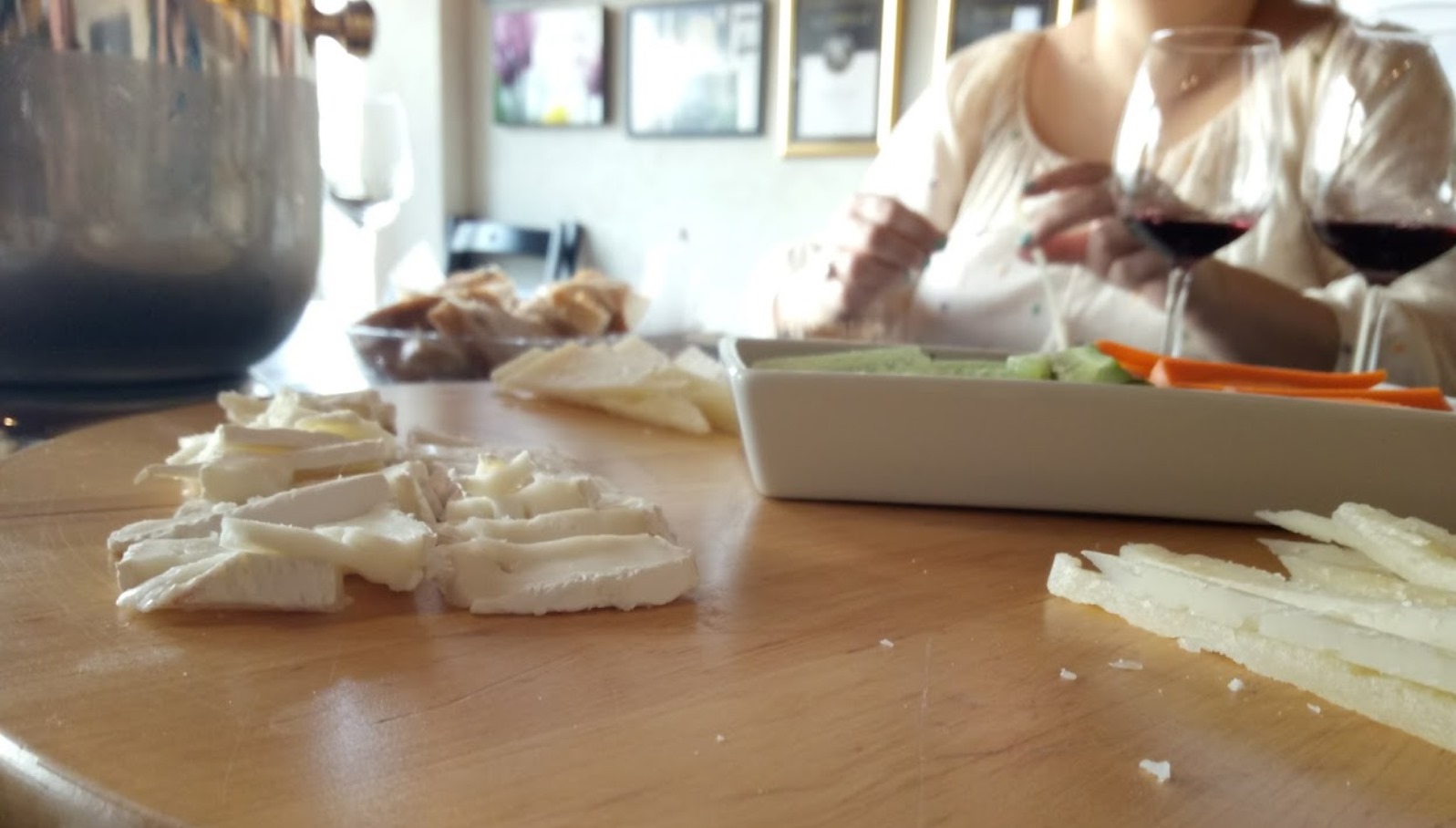As with other gourmet food and drink industries in Israel, there has been much interest in boutique cheeses as of late. An influx of French immigrants, as well as an increase in Israeli culinary travel to European countries, has created the demand.
One such immigrant, who came to Israel from the French Alps 12 years ago and spends her free time manning the counter at HaTzarfatia B’Havat Kish (The French Woman in the Kish Village Farm), selling specialty cheeses from five area dairies. Ducks, turkeys, and peacocks live in expansive cages across the walkway.
“It’s not the stuff of making money,” she warns. “If you’re going to be a boutique cheese producer, you have to do it for the love of the cheese.”
On Naot Goat Farm, a small but cozy five-cabin tzimmer (bed-and-breakfast), Gadi and Leah Nechimov and their six children turned this uncharted territory into a farm and cheese shop. Naot is just one of 24 similar farms that make up Israel’s modern desert cheese, agriculture and wine hospitality route in the Negev highlands of the South, along the ancient Nabatean spice route.
The farm’s goat milk is used to produce rich yogurt and labane, Balkan-style fresh cheeses such as feta and halumi, aged French-style cheeses such as tomme, and “Nitzan” – a hard cheese aged five months and flavored with wine, thyme, nigella seed or black pepper.
Cheese-making in the Galilee
Up north, Galilean boutique cheese producers are similarly linked and there are many more of them.
Shirat Roim boutique dairy owner and artisanal cheese producer Michal Mor Melamed recently relocated the visitors’ center from pastoral Kfar Kish in the Jezreel Valley to Kibbutz Lotem in the Western Galilee, also home to the organic Lotem boutique winery.
“The winery was one of the main reasons that we moved to Kibbutz Lotem, and we have worked in mutual cooperation and productivity from the first minute until today,” she says.
Melamed, an audiologist and speech therapist, was first exposed to cheese-making in 2005 on vacation in the Swiss Alps. She went on to study artisanal cheese-making in Israel, Switzerland, France and Italy, ultimately opening up her own dairy in 2008.
So far, four Shirat Roim (Shepherds’ Song) cheeses have been recognized in world cheese competitions in France, Switzerland and at home in Israel.
Among her award-winning cheeses are those made from sheep’s milk: Ma’ayan Harod (a tomme-style hard cheese), Ein Muda (a hard Pecorino-style cheese), Inbar (a spicy, semi-hard cheese inspired by Mutschli Swiss cheese, spiced with Swiss herbs, wine or seeds like caraway or cumin) and Kmehim (a semi-hard cheese infused with slices of black truffles soaked in truffle oil, matured over five to eight weeks).
At the dairy’s new visitors’ center, guests can witness the cheese-making and ripening process, taste and buy the farm’s 19-plus varieties of Swiss, French and Italian-inspired cheeses, watch a video about the farm, and even take cheese-making workshops. Together with Lotem Winery, they sell other gourmet goods, like locally made olive oil and jam.
White cheese is a favorite
Boutique goat cheeses were introduced to Israel by Shai Seltzer, who represents the modern era in Israeli artisan cheese-making dating to the early 1980s. Seltzer started aging his European-style cheeses in ancient natural caves on his Har Eitan farm in the Judean hills near Jerusalem. Today, chefs from around the world make his remote hideaway a must-visit when they come to Israel.
Cow’s milk cheese production began with the first European pioneers in the late 1800s. They worked Israel’s rough landscape to establish agricultural communities (kibbutzim), eating what they could grow and produce themselves or buy cheaply from their neighbors.
To accommodate their simple and communal lifestyle, it made sense to eat fresh cheeses that were low-maintenance and fast to produce, such as the variety Israelis call “white cheese” (gvina levana), a cross between spreadable cheese and yogurt that originated in Germany, as well as cottage cheese and sour cream. To this day, cottage cheese and white cheese are staples in the Israeli diet.
Boutique cheese-making in the Old City of Safed (Tzfat) dates back to 1840, the year HaMeiri Dairy was established in the home of Persian immigrant Meir Arzoni (later changed to HaMeiri). The dairy introduced indigenous cheeses such as brined, salty Tzfatit (named after the city) and feta-like Bulgarian cheese.
Yet another beautiful cheese farm close by is Ein Camonim (literally, “there’s nothing like them”). The destination tasting shop and restaurant started by Drora and Amiram Ovrutski sits on land overlooking the pine tree-packed hills in a remote mountain pass of the northern Galilee.
The Ovrutskis’ goats graze naturally on the wild hillside and are milked twice daily. In the cheese shop, foodies are encouraged to taste the different varieties of handmade cheeses alongside frozen goat yogurt, fig jam and boutique wine from Haifa’s Vortman Winery.
Originally posted at Israel21c.

